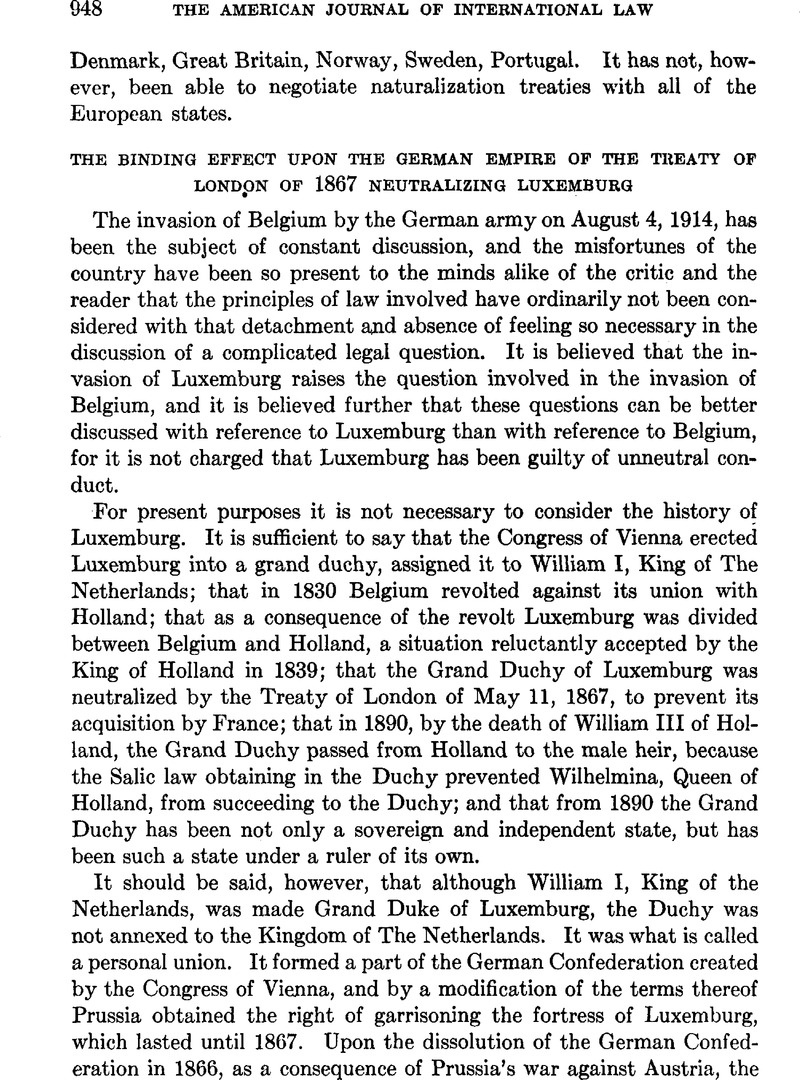No CrossRef data available.
Published online by Cambridge University Press: 04 May 2017

1 Another case may be cited to show that Germany does not contend that the treaty of 1828 was abrogated by the absorption of Prussia into the North German Confederation and the Empire. The Act of Congress of July 26, 1911, entitled “An Act to permit reciprocal trade relations with the Dominion of Canada,” admitted chemical wood pulp, etc., free of duty from Canada, and Germany claimed that the favored-nation clause of Article 9 of the treaty with Prussia of 1828 entitled it to freedom from export duties. The decision of the Board of General Appraisers levying the tax was reversed in the case of The American Express Co. et al. v. United States, decided by the United States Court of Custom Appeals in December, 1912. (This Journal, Vol. 7,1913, pp. 891 et seq.)